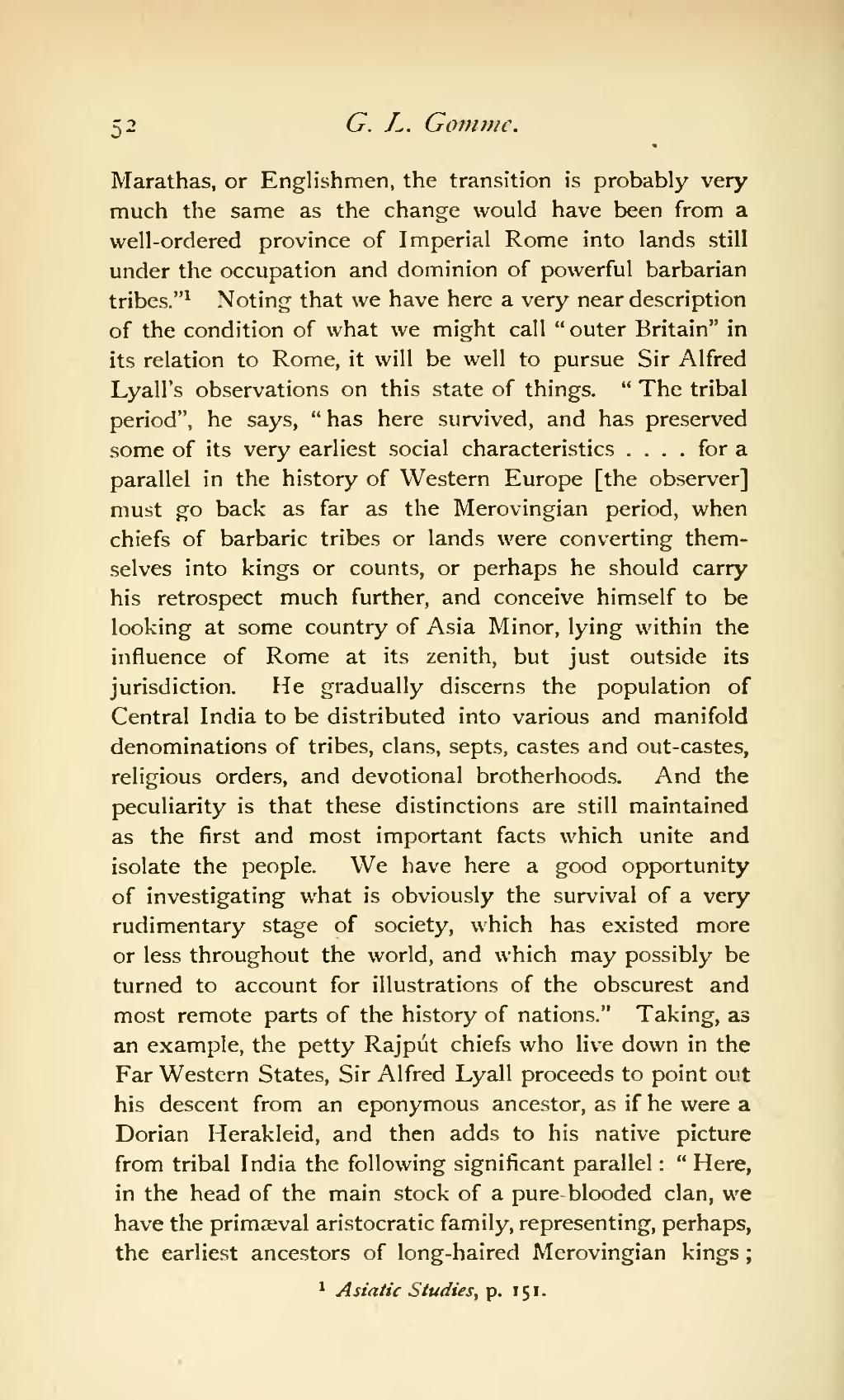Marathas, or Englishmen, the transition is probably very much the same as the change would have been from a well-ordered province of Imperial Rome into lands still under the occupation and dominion of powerful barbarian tribes."[1] Noting that we have here a very near description of the condition of what we might call "outer Britain" in its relation to Rome, it will be well to pursue Sir Alfred Lyall's observations on this state of things. "The tribal period", he says, "has here survived, and has preserved some of its very earliest social characteristics .... for a parallel in the history of Western Europe [the observer] must go back as far as the Merovingian period, when chiefs of barbaric tribes or lands were converting themselves into kings or counts, or perhaps he should carry his retrospect much further, and conceive himself to be looking at some country of Asia Minor, lying within the influence of Rome at its zenith, but just outside its jurisdiction. He gradually discerns the population of Central India to be distributed into various and manifold denominations of tribes, clans, septs, castes and out-castes, religious orders, and devotional brotherhoods. And the peculiarity is that these distinctions are still maintained as the first and most important facts which unite and isolate the people. We have here a good opportunity of investigating what is obviously the survival of a very rudimentary stage of society, which has existed more or less throughout the world, and which may possibly be turned to account for illustrations of the obscurest and most remote parts of the history of nations." Taking, as an example, the petty Rajput chiefs who live down in the Far Western States, Sir Alfred Lyall proceeds to point out his descent from an eponymous ancestor, as if he were a Dorian Herakleid, and then adds to his native picture from tribal India the following significant parallel: "Here, in the head of the main stock of a pure-blooded clan, we have the primaeval aristocratic family, representing, perhaps, the earliest ancestors of long-haired Merovingian kings;
- ↑ Asiatic Studies, p. 151.
